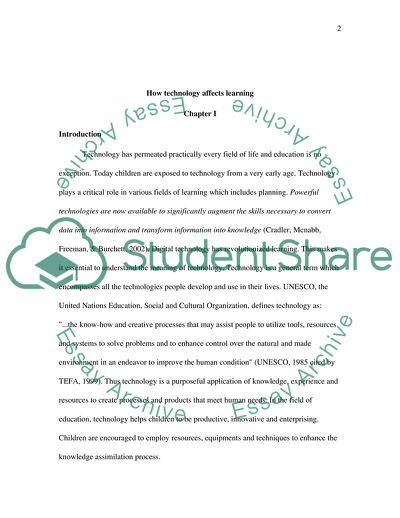Cite this document
(How Technology Affects Learning Assignment Example | Topics and Well Written Essays - 2500 words, n.d.)
How Technology Affects Learning Assignment Example | Topics and Well Written Essays - 2500 words. https://studentshare.org/education/1705613-how-technology-affects-student-learning
How Technology Affects Learning Assignment Example | Topics and Well Written Essays - 2500 words. https://studentshare.org/education/1705613-how-technology-affects-student-learning
(How Technology Affects Learning Assignment Example | Topics and Well Written Essays - 2500 Words)
How Technology Affects Learning Assignment Example | Topics and Well Written Essays - 2500 Words. https://studentshare.org/education/1705613-how-technology-affects-student-learning.
How Technology Affects Learning Assignment Example | Topics and Well Written Essays - 2500 Words. https://studentshare.org/education/1705613-how-technology-affects-student-learning.
“How Technology Affects Learning Assignment Example | Topics and Well Written Essays - 2500 Words”. https://studentshare.org/education/1705613-how-technology-affects-student-learning.


